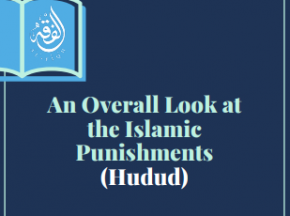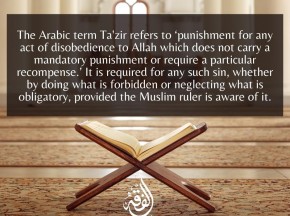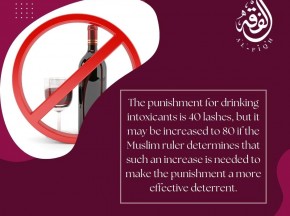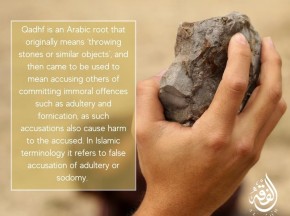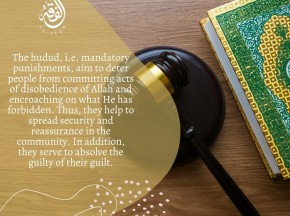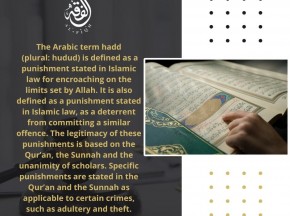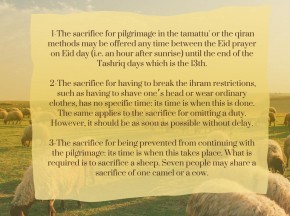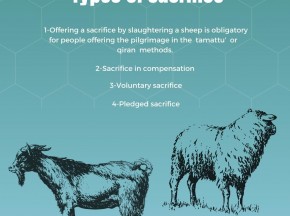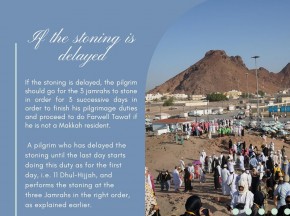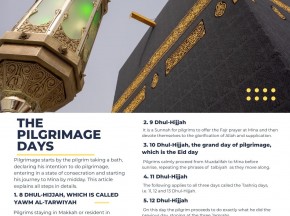content of level
Is polygamy for everyone? Can wife force him not to take another wife What if she threatens divorce?
Is polygamy for everyone? Can wife force him not to take another wife What if she threatens divorce? - assim al hakeem
Look at things with the glasses of Quran & Sunnah | Sheikh in Indonesia
Look at things with the glasses of Quran & Sunnah | Sheikh in Indonesia - assim al hakeem
How should muslims react to burning of the Quran?
How should muslims react to burning of the Quran? - assim al hakeem
Do muslims believe in cavemen?
Do muslims believe in cavemen? - assim al hakeem
Can women be involved in politics or giving dawah?
Can women be involved in politics or giving dawah? - assim al hakeem
An Overall Look at the Islamic Punishments (Hudud)
An Overall Look at the Islamic Punishments (Hudud)
Ta'zir - Discretionary Punishment
The Arabic term Ta'zir refers to ‘punishment for any act of disobedience to Allah which does not carry a mandatory punishment or require a particular recompense.’ It is required for any such sin, whether by doing what is forbidden or neglecting what is obligatory, provided the Muslim ruler is aware of it.
The punishment for drinking intoxicants
The punishment for drinking intoxicants is 40 lashes, but it may be increased to 80 if the Muslim ruler determines that such an increase is needed to make the punishment a more effective deterrent.
Drinking any type of intoxicant
Drinking any type of intoxicant is forbidden, whether it is in small or large quantities. Indeed drinking is a major sin which is forbidden in the Qur’an and the Sunnah, as well as by the unanimity of scholars.
False accusation of adultery is a major sin
Making a false accusation of adultery is one of the major sins and it is forbidden by clear statements in the Qur’an and the Sunnah, and by the unanimity of scholars. It is absolutely forbidden to accuse anyone of immoral and lewd action.
False accusation
Qadhf is an Arabic root that originally means ‘throwing stones or similar objects’, and then came to be used to mean accusing others of committing immoral offences such as adultery and fornication, as such accusations also cause harm to the accused. In Islamic terminology it refers to false accusation of adultery or sodomy.
How Islam Views Adultery
Adultery is one of the gravest and most wicked sins as it leaves very serious effects on both individuals and society. It causes the absence of clarity of lineage, which leads to people’s rights of inheritance being mixed up, and families split and collapse as a result, with grave consequences for children and their upbringing. When adultery leads to pregnancy, the child is often brought up by someone who is not its real father. Social ties are considerably weakened by the spread of adultery, and therefore Islam warns very sternly against all sexual relations outside the marriage bond and prescribes severe punishments for it.
The concept of hadd in islamic law
The hudud, i.e. mandatory punishments, aim to deter people from committing acts of disobedience of Allah and encroaching on what He has forbidden. Thus, they help to spread security and reassurance in the community. In addition, they serve to absolve the guilty of their guilt.
Islamic Punishments (Hudud)
The Arabic term hadd (plural: hudud) is defined as a punishment stated in Islamic law for encroaching on the limits set by Allah. It is also defined as a punishment stated in Islamic law, as a deterrent from committing a similar offence. The legitimacy of these punishments is based on the Qur’an, the Sunnah and the unanimity of scholars. Specific punishments are stated in the Qur’an and the Sunnah as applicable to certain crimes, such as adultery and theft.
Time
1-The sacrifice for pilgrimage in the tamattu' or the qiran methods may be offered any time between the Eid prayer on Eid day (i.e. an hour after sunrise) until the end of the Tashriq days which is the 13th. 2-The sacrifice for having to break the ihram restrictions, such as having to shave one’s head or wear ordinary clothes, has no specific time: its time is when this is done. The same applies to the sacrifice for omitting a duty. However, it should be as soon as possible without delay. 3-The sacrifice for being prevented from continuing with the pilgrimage: its time is when this takes place. What is required is to sacrifice a sheep. Seven people may share a sacrifice of one camel or a cow.
Types of sacrifice
1-Offering a sacrifice by slaughtering a sheep is obligatory for people offering the pilgrimage in the tamattu' or qiran methods. 2-Sacrifice in compensation 3-Voluntary sacrifice 4-Pledged sacrifice
The Sacrifice and its Rulings
Sacrifice or Hady is slaughtering animals to earn God’s reward as a part of Pilgrimage. There are five types; some are compulsory others are voluntary or recommended. Time and place for sacrifice depend on its type.
On the way back
Whenever the Prophet came home from any expedition or pilgrimage or 'umrah, when he came to a narrow passage he used to declare that there is no deity than Allah and he has no partners. Read the full sentence below.
If the stoning is delayed
If the stoning is delayed, the pilgrim should go for the 3 jamrahs to stone in order for 3 successive days in order to finish his pilgrimage duties and proceed to do Farwell Tawaf if he is not a Makkah resident. A pilgrim who has delayed the stoning until the last day starts doing this duty as for the first day, i.e. 11 Dhul-Hijjah, and performs the stoning at the three Jamrahs in the right order, as explained earlier.
The pilgrimage days
Pilgrims staying in Makkah or resident in Makkah are recommended to take a bath, wear perfume, and then enter into the state of consecration for the pilgrimage during mid-morning. Pilgrimage starts by the pilgrim taking a bath, declaring his intention to do pilgrimage, entering in a state of consecration and starting his journey to Mina by midday. This article explains all steps in details. 1. 8 Dhul-Hijjah, which is called Yawm al-Tarwiyah 2. 9 Dhul-Hijjah It is a Sunnah for pilgrims to offer the Fajr prayer at Mina and then devote themselves to the glorification of Allah and supplication. 3. 10 Dhul-Hijjah, the grand day of pilgrimage, which is the Eid day Pilgrims calmly proceed from Muzdalifah to Mina before sunrise, repeating the phrases of talbiyah as they move along. 4. 11 Dhul-Hijjah The following applies to all three days called the Tashriq days, i.e. 11, 12 and 13 Dhul-Hijjah.5. 12 Dhul-Hijjah On this day the pilgrim proceeds to do exactly what he did the previous day, stoning at the three Jamrahs.6. 13 Dhul-Hijjah On this day, pilgrims do the stoning at the three Jamrahs, as they did the previous two days. The time for stoning ends at sunset on this day.






